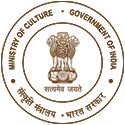The Samiti as part of the series of on-line lecture series organized a webinar on “Need for Effective Dialogue for a Culture of Peace” on May 2, 2020. Eminent Gandhian scholar and thinker Prof. N Radhakrishnan and Prof. Priyankar Upadhyaya, UNESCO Chair for Peace Research, Banaras Hindu University and an eminent academic were the key speakers on the occasion. Shri Dipanker Shri Gyan, Director GSDS along with other GSDS staff took part in the discussion that was moderated by Dr. Vedabhyas Kundu, Programme Officer. The technical support was provided by ‘Digital India’. Almost 137 participants took part in the webinar. The webinar discussed the application of peace methodologies in day-to-day life for establishing a culture of dialogue which the ‘vedas’, and ‘upanishads’ talked about and how leading practitioners of peace and non-violence from HH the Dalai Lama to Swami Vivekananda, to Mahatma Gandhi, Daisaku Ikeda and others advocated throughout their life’s teachings and mission.
Giving an introduction to the dialogue, Dr. Vedabhyas said how dialogue create space in which participants learn, which in turn generates cooperation. He said that ‘Dialogue is a communication that honours relationship’.
Welcoming the participants, Shri Dipanker Shri Gyan threw some insights into the essence and neutrality of dialogue and why dialogue is necessary for establishing peace in the society. Expressing his anguish that human beings are themselves the destroyer of peace, Shri Gyan called upon people to develop empathy towards others for which there is a need to patiently hear others’ view point, understand their point and reach a level of mutual agreement.
Prof. N Radhakrishnan based his talk on the two principles of Vasudaiva Kutumbhakam (the world is one family) and the ‘Middle Path’ of the Buddha. He reflected upon the power of dialogue as an instrument and practice, to foster better relationship and said that dialogue is a process to enable one to discover oneself and one’s own potential. He further said that dialogue develops refreshing strategies and infuses courage, confidence and consciousness.
Prof. Priyankar Upadhyaya in his address Reflecting on the concept of vasudaiva kutumbhakam (the world is one family), Prof. Priayankar Upadhyaya said that the Indian tradition of culture of peace and non-violence has been accepted by the world. Calling non-violence as one of the major foundation stone of any society, Prof. Upadhyaya reiterated the nonviolent advocacy strategies of Mahatma Gandhi that he continuously followed in his struggle against the British.
Saying that building peace is a continuous process, he referred to what Mahatma Gandhi had said: “The world will live in peace, only when the individuals composing it make up their minds to do so.” He elaborated further that “The idea of peace has long been presented as one of the most cherished goals of humanity”, adding, “a vital precondition to fulfilling its potential. Peace is an overarching expression that denotes the ambitious quest of living together in harmony”.
He further said that “Peace is a continuous process and a journey of discovery”. “The deep fissures in social justice and surges of radicalization and violent extremism in recent years clearly indicate that the values of pluralism and tolerance embedded in a culture of peace have yet to be assimilated in our societies. The respect for diversity in everyday life is a sine quo non for positive peace, denoting the optimum realization of human potential. This can only be achieved through structures and processes that nurture constant dialogue through the active participation of individuals and communities. There is an urgent need for encouraging dialogue and peace rather than conflict and violence and the role of peacekeepers are crucial and equally exemplary.












